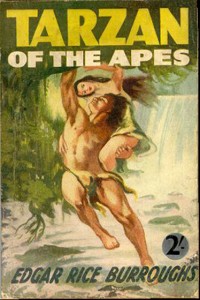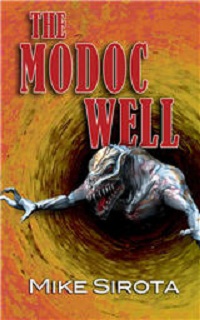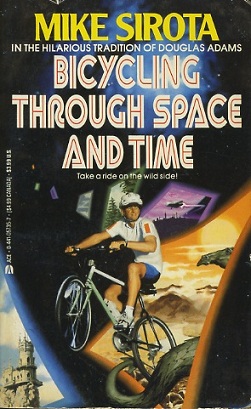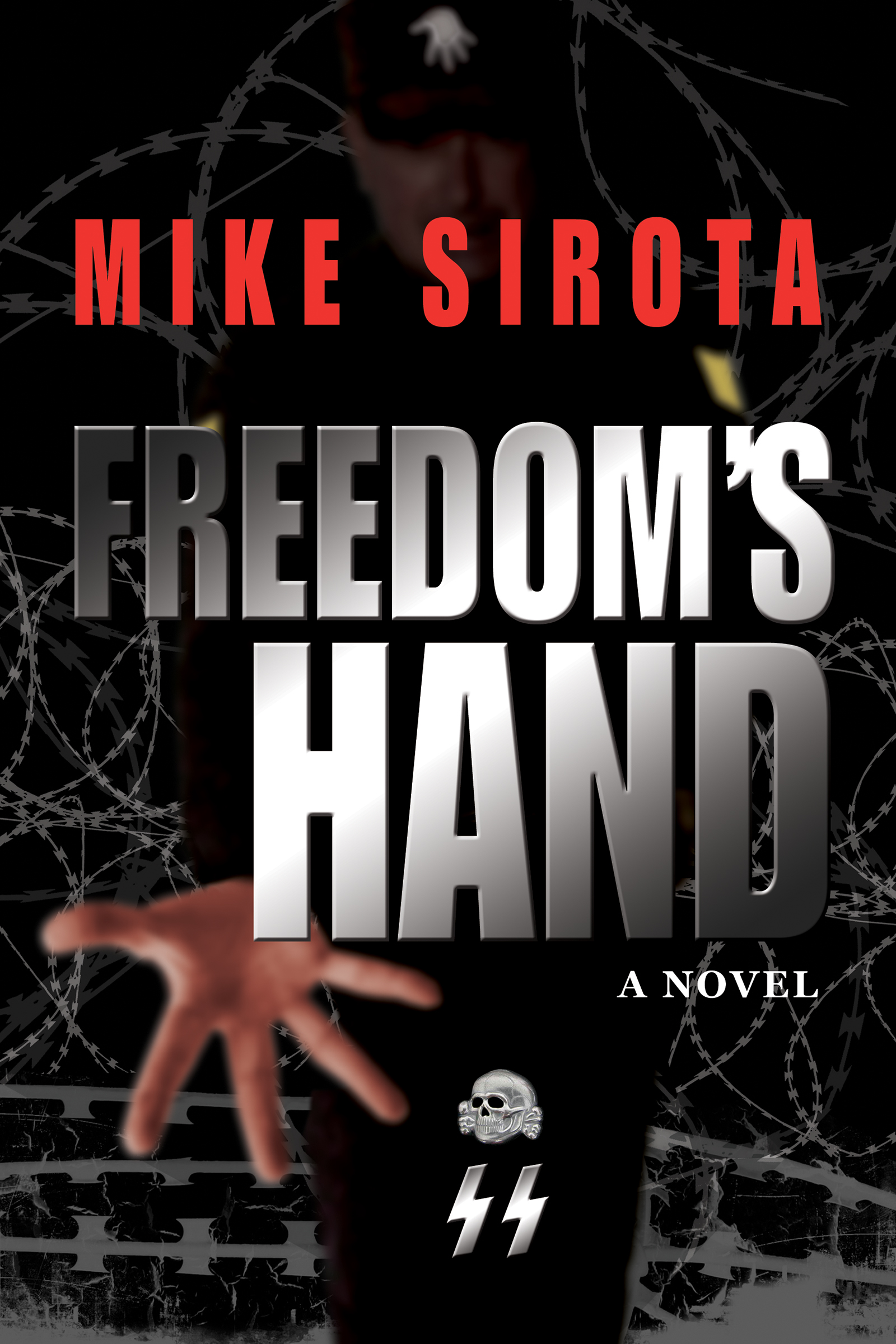Through the centuries decades I’ve been asked a thousand times, “Mike, why do you write?” Being of eastern European descent I always answer that question with other questions. “Why do I write?” you ask. “Why do I breathe? Why do I eat and drink?”
That’s about how important writing is to me.
It is a given that reading begets writing. As a kid growing up in The Bronx, and being pretty much a loner, I read a heck of a lot of books. My parents didn’t have much money, so instead of buying books I haunted the aisles of my school library, as well as many branches of the New York Public Library. It got to where the librarians knew me on a first-name basis. (Although when they said “Mike” it usually sounded a lot like “Schmuck”.)

My favorite writer!
So reading all of these books generated story idea after story idea, numerous ones swirling around in my brain, just begging to be put down on paper, all of this at a young age. Since adventure-fantasy, sword & sorcery, and science fiction topped my favorite genres, at least twenty or so of my early novels (seventeen of which got published) fell under those umbrellas.
Back then I never considered my NEED to write; I just loved doing it. But in retrospect I came to realize that, to some degree, I ran to the typewriter to cope with—or escape from—the realities of day-to-day living. The strange worlds that I created—Reglathium, Boranga, Shadzea, Berbora, and others—were great places in which to—well, HIDE, I guess.
But I began to understand my need to write during the 1980s when I wrote my first contemporary novel, a horror story titled The Well. (Bantam published it in 1991, and I  reissued it as The Modoc Well in 2011.) I won’t get into specifics, but someone I was quite angry with at the time got wasted in the most brutal of ways—on paper, of course. I am by nature a passive guy, but who knows to what extremes an individual can be driven? Doing it on paper proved a great way of venting—and avoiding a life sentence for murder. (See my post, “Writing to Vent.”)
reissued it as The Modoc Well in 2011.) I won’t get into specifics, but someone I was quite angry with at the time got wasted in the most brutal of ways—on paper, of course. I am by nature a passive guy, but who knows to what extremes an individual can be driven? Doing it on paper proved a great way of venting—and avoiding a life sentence for murder. (See my post, “Writing to Vent.”)
True story: back then I had a tee-shirt made that read, Writers do it on paper. Someone read my shirt, looked up at me and said, “So do puppies.”
I did something else in The Modoc Well that became a precursor for nearly all my subsequent writing: I made a statement. I’d researched the Modoc tribe of northern California for background to my story and was touched by their history. Ultimately I devoted most of a chapter to the main character, Greg Lowell, telling his family about the Modocs as they visit a historical site.
The same sort of statement came about in my second contemporary novel, Demon Shadows, this time with the Washoe tribe in the Lake Tahoe area. And, to an even greater extent, in The Burning Ground, partly about the genocide of the Maidu tribe in the Sierra Nevada foothills during the Gold Rush.
Nor did I let the genre stop me from making statements. In my supposed “funny science fiction” trilogy, Bicycling Through Space and Time, I dealt with matters as diverse as bullying people who are different, the lunacy of war, an homage to a great singer, and a personal loss, among many other issues.
diverse as bullying people who are different, the lunacy of war, an homage to a great singer, and a personal loss, among many other issues.
As I write this, the international community is deciding what to do about a rat-fuck psycho (sorry) who has gassed to death hundreds, maybe thousands of his own people. This brings to mind the theme of my recently released thriller, Freedom’s Hand, in which a small  army of rat-fuck psychos take it upon themselves to eliminate all of this country’s minorities. Hate Never Dies, I pointed out last month in two posts. Check them out. In Freedom’s Hand I write to vent; I write to make a statement; I write in anger; I write to cope with the images of the tortured faces of those I grew up with in my neighborhood, survivors of the Nazi Holocaust.
army of rat-fuck psychos take it upon themselves to eliminate all of this country’s minorities. Hate Never Dies, I pointed out last month in two posts. Check them out. In Freedom’s Hand I write to vent; I write to make a statement; I write in anger; I write to cope with the images of the tortured faces of those I grew up with in my neighborhood, survivors of the Nazi Holocaust.
Why do I write? I write to live.

Who was it who said that in days gone by and when the world was a better place, the most respected man in the village was the one who “could quote the best poetry, sing the best song, tell the best story or create the most beautiful art.” We certainly have come a long way baby….Writing is one of those unique professions where it chooses you, you don’t choose it. I did some acting in college. Thank god acting decided not to choose me!!!!!
Wrong, Pat. I think you would’ve made a great character actor! 🙂
Wonderful post, every word. That last line about took my breath away … I get it, I do.
Somehow, Lee, I thought you would.
I can relate to that need! Thanks for sharing your journey with us up-and-comers… Inspiring, to say the least. 🙂
Thanks, GOTB. You are fast rising above the rank of “up-and-comer”… 🙂
When asked the same question, I answered with the rather politically incorrect “It’s therapy. It’s either writing or up on a rooftop with a rifle.” The questioner agreed I should keep writing.
Seriously, most writers are troubled by their own personal affairs or what they see in the world around them. Through their gift of language, they work it out for themselves, but the rest of us reap the rewards of their insight and imagination. We as a people must always be grateful to those individuals who see the injustices and problems and dare to set their thoughts down on paper so that the rest of us open our eyes and see clearly.
Write on.
Great insight, Mark. Thanks!
My favorite post yet!
High praise, thanks!
Hey, Mike – don’t hold back, there. Tell us how you really feel. 🙂 But then, as you said, that’s what writing is for you; a way to express your internal self to the outside world. As Mark said, the rest of us reap the benefit of that. This post is a great example, so thank you for sharing something so inspirational.
As you know, for me, it started like it did for Mark: it was therapy. But the hypothetical gun would have been turned in the opposite direction. Even so, it was a good idea for me to write, rather than the alternative.
In the meantime, I have learned a great deal about how to write for other reasons. While “writing to live” is often the first step, and clearly remains a factor, “writing to get published” is a little more complicated. I’m still working on that, with you as an excellent guide.
Ah yes, I do get carried away. But I can’t be accused of lacking in passion. 🙂
No, you aren’t lacking in passion, nor did you get carried away. At least not in my opinion.
Gerry (my husband) can bear witness to several recent (verbal) rants of my own where I called most of the world equally bad names for being such hypocrites. How is it that the rat-fuck psycho in question can kill over 100k people, and make 2 million refugees (who have lost everything except their lives), and nobody gives a shit? Or at least not officially?
But use a bit of poison gas…and we want to lob a few missiles into Syria to “punish” Assad. The only people who will suffer are those we hit, and it won’t be him. In fact, I’ve heard/read several opinions that we DON’T want him out of power, or at least not at this point. So then why bother?
I am not a pacifist. I just want people to be honest about the fact that killing is killing. Instead, they play convoluted games with each other in order to salve their conscience. They create rules that say that gang war deaths on our city streets are murder, while the very same people could put on uniforms, go to another country, and kill hundreds, or even thousands, and then come home as “heroes”.
And nobody should crawl up my backside for denigrating our soldiers, which I am NOT doing, by any means. My father was career Army, so I know about that life and have great respect for our men and women in uniform. It’s the societal hypocrisy I’m talking about. A few people are writing about it, these days, but sadly, only a few.
And that’s where writers need to keep speaking up in order to make other people think…just like “Freedom’s Hand” did for me.
Whew! Good insights, Kate. Your passion shows.